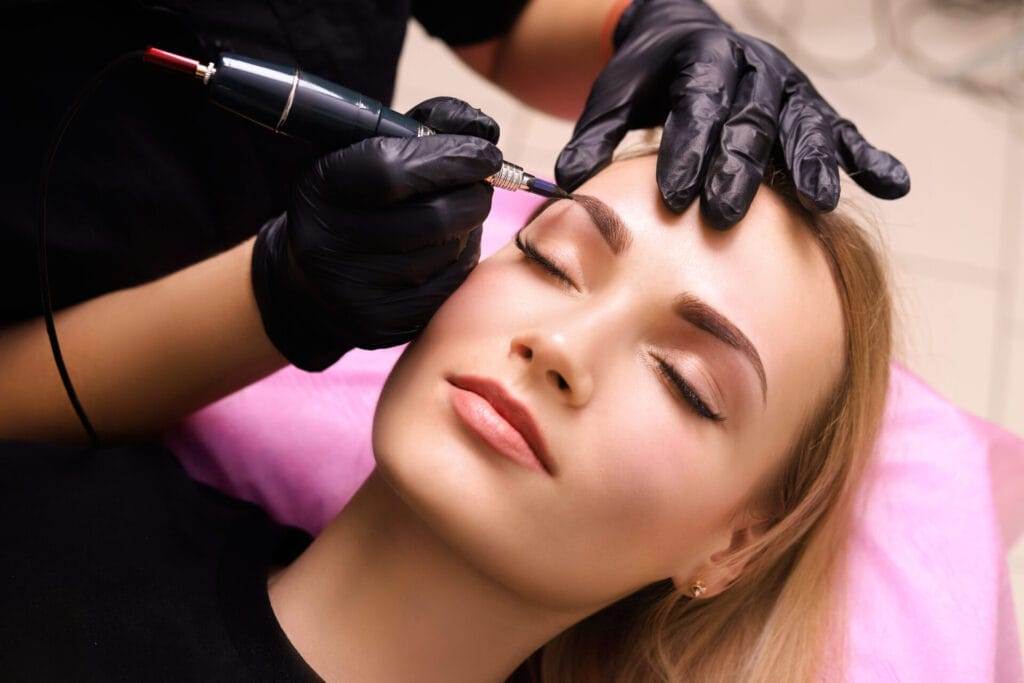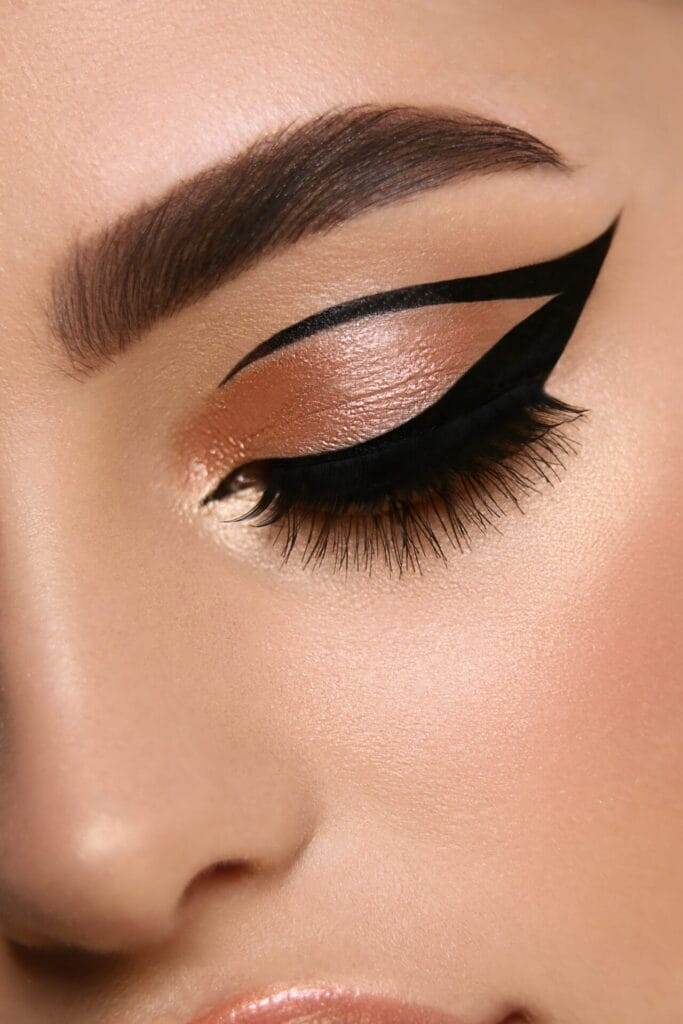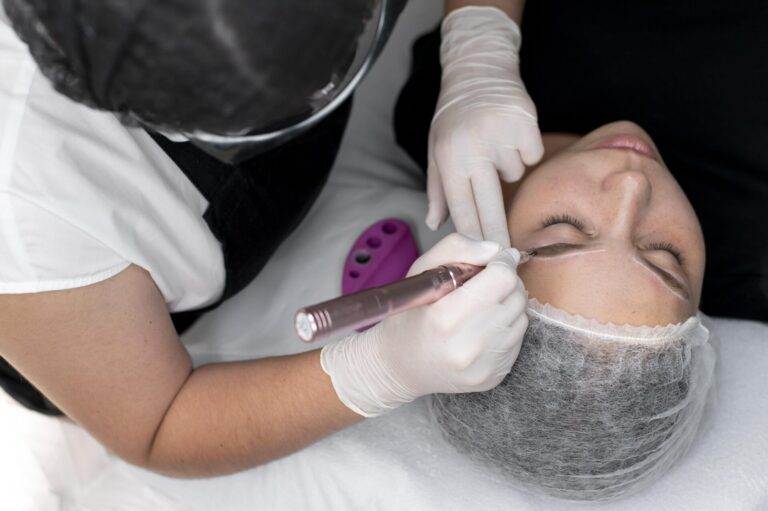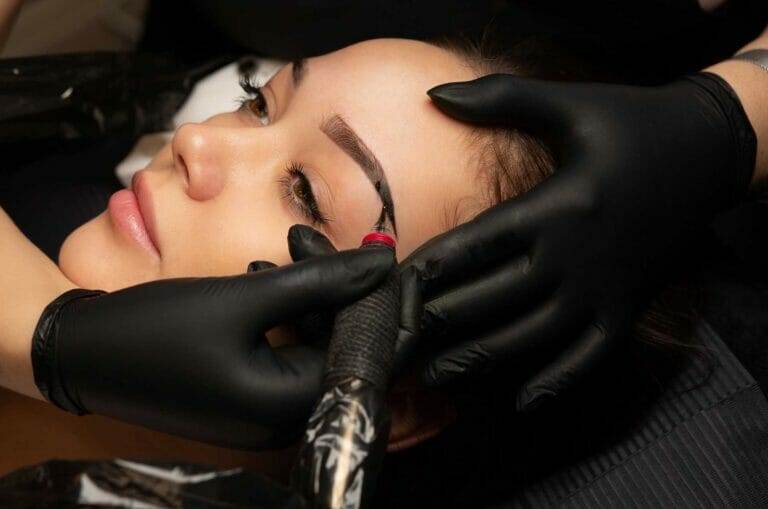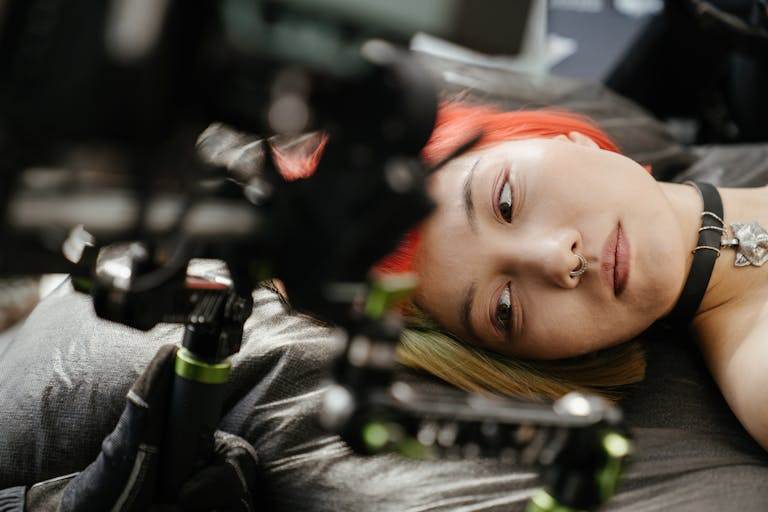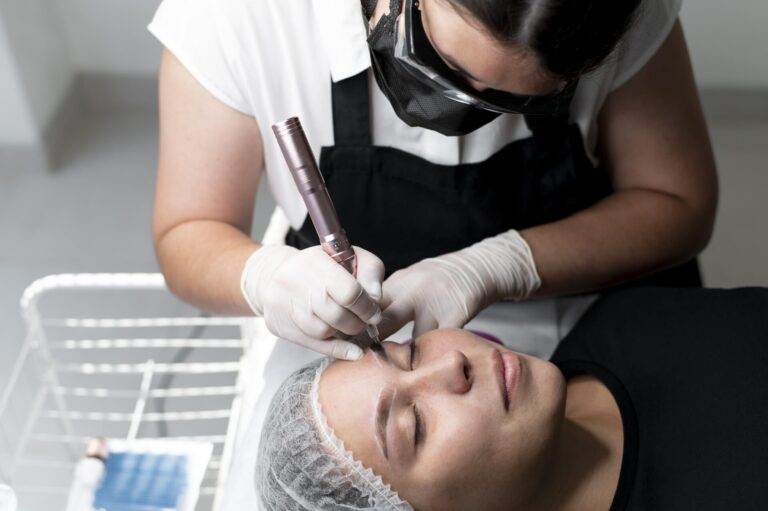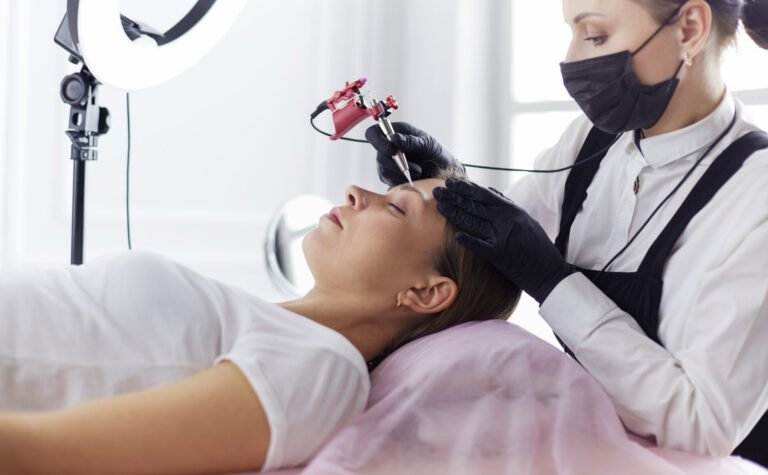Cosmetic tattooing, also known as permanent makeup or micropigmentation, is a procedure that involves the application of pigments to the skin to enhance and define certain features. It is a form of tattooing that is specifically designed to mimic the appearance of makeup. The pigments are implanted into the dermal layer of the skin using a needle or a microblade, creating long-lasting results.
The history of cosmetic tattooing can be traced back thousands of years. Ancient civilizations such as the Egyptians and Romans used various techniques to enhance their features using pigments. In recent years, cosmetic tattooing has gained popularity due to its ability to save time and effort in daily makeup routines.
Understanding the Different Types of Cosmetic Tattooing
There are several different types of cosmetic tattooing procedures that can enhance various features of the face and body.
Microblading is a technique used to create natural-looking eyebrows by manually implanting pigments into the skin using a handheld tool with tiny needles. This procedure is ideal for those who want to fill in sparse or thin eyebrows.
Permanent eyeliner involves applying pigments along the lash line to create the appearance of fuller and more defined eyes. This procedure is perfect for those who want to save time on their daily eyeliner application.
Lip blush is a technique used to enhance the natural color and shape of the lips. It involves implanting pigments into the lips to create a soft and natural-looking tint. This procedure is great for those who want to add definition and color to their lips without the need for lipstick.
Areola restoration is a procedure that helps restore the appearance of the areolas and nipples after breast reconstruction surgery or other trauma. It involves tattooing pigments onto the skin to create realistic-looking areolas.
Scar camouflage is a technique used to conceal scars by matching the color of the scar tissue with surrounding skin tones. This procedure can help improve the appearance of scars and boost self-confidence.
Benefits of Cosmetic Tattooing for Enhancing Your Natural Beauty
One of the main benefits of cosmetic tattooing is that it saves time and effort in daily makeup routines. With permanent makeup, you no longer have to spend hours applying and reapplying makeup. You can wake up with perfectly shaped eyebrows, defined eyes, and tinted lips.
Cosmetic tattooing also boosts self-confidence by enhancing your natural features. It can help correct asymmetry, add definition, and create a more balanced appearance. Many people feel more confident and beautiful with the added enhancement that cosmetic tattooing provides.
Furthermore, cosmetic tattooing enhances facial features in a subtle and natural way. The pigments used are carefully chosen to match your skin tone and hair color, creating a seamless and realistic look. The results are long-lasting, allowing you to enjoy the benefits of cosmetic tattooing for years to come.
The Procedure of Cosmetic Tattooing Explained
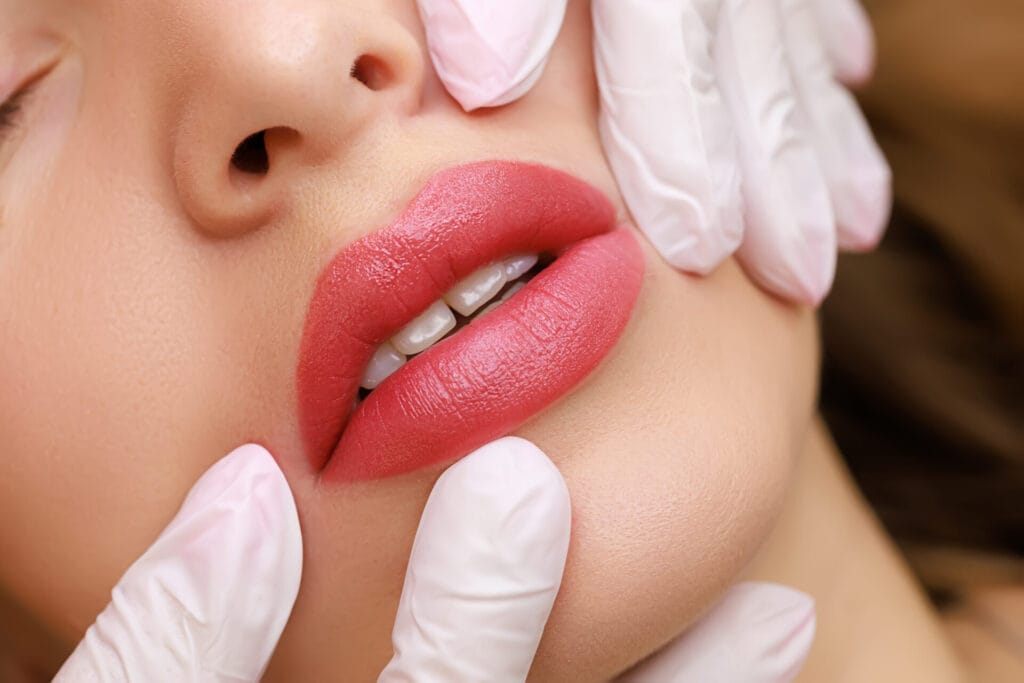
The process of cosmetic tattooing typically begins with a consultation with a professional artist. During this consultation, you will discuss your desired results, choose the right color and shape for your features, and go over any concerns or questions you may have.
Once you have decided on the details of your procedure, the artist will numb the area using a topical anesthetic to minimize any discomfort during the tattooing process. This ensures that you are as comfortable as possible throughout the procedure.
The tattooing process involves using a needle or microblade to implant pigments into the dermal layer of the skin. The artist will carefully create strokes or lines that mimic natural hair or makeup. The process can take anywhere from 1 to 3 hours, depending on the complexity of the procedure.
After the tattooing is complete, the artist will provide you with aftercare instructions to ensure proper healing and long-lasting results. This may include avoiding water and sun exposure, applying ointment to the treated area, and scheduling a touch-up appointment if necessary.
Preparing for Your Cosmetic Tattooing Appointment
Before your cosmetic tattooing appointment, it is important to do some research and find a reputable and experienced artist. Look for artists who have a portfolio of their work and read reviews from previous clients. This will give you an idea of their skill level and the quality of their work.
It is also important to avoid blood-thinning medications such as aspirin or ibuprofen before your appointment, as these can increase the risk of bleeding during the procedure. Consult with your doctor if you are unsure about any medications you are taking.
On the day of your appointment, make sure to arrive with clean skin. Avoid wearing any makeup or skincare products on the treated area. This will ensure that the pigments adhere properly to the skin and provide long-lasting results.
Lastly, consider bringing a friend or family member for support during your appointment. Cosmetic tattooing can be a nerve-wracking experience for some people, and having someone there to offer moral support can make the process more comfortable.
Aftercare and Recovery Tips for Cosmetic Tattooing
After your cosmetic tattooing procedure, it is important to follow proper aftercare instructions to ensure optimal healing and long-lasting results.
Avoid water and sun exposure for at least 7-10 days following the procedure. Water can cause the pigments to fade or become discolored, while sun exposure can cause them to fade more quickly. It is important to protect the treated area from these elements to maintain the integrity of the pigments.
Apply ointment as directed by your artist to keep the treated area moisturized and promote healing. This will help prevent scabbing and ensure that the pigments heal evenly.
It is crucial not to pick at any scabs that may form during the healing process. Picking at scabs can cause the pigments to become patchy or fade prematurely. Allow the scabs to naturally fall off on their own.
Lastly, schedule a touch-up appointment with your artist if necessary. Some pigments may fade or appear lighter after the initial healing process. A touch-up appointment can help enhance and perfect the results of your cosmetic tattooing procedure.
Common Myths and Misconceptions About Cosmetic Tattooing
There are several myths and misconceptions surrounding cosmetic tattooing that can deter people from considering the procedure. It is important to separate fact from fiction when it comes to this popular beauty enhancement technique.
One common myth is that cosmetic tattooing is painful. While some discomfort may be experienced during the procedure, most artists use topical anesthetics to numb the area and minimize any pain or discomfort. The level of pain varies from person to person, but many clients report that the procedure is relatively painless.
Another misconception is that cosmetic tattooing looks fake or unnatural. When done by a skilled and experienced artist, cosmetic tattooing can create natural-looking results that enhance your features without looking overdone. The key is to choose an artist who has a portfolio of their work and can demonstrate their ability to create realistic and flattering results.
Some people believe that cosmetic tattooing is only for women. However, men can also benefit from cosmetic tattooing procedures such as microblading or scar camouflage. These procedures can help enhance facial features and boost self-confidence for both men and women.
Lastly, there is a misconception that cosmetic tattooing is not safe. Like any tattooing procedure, there are risks involved, but when performed by a trained professional in a sterile environment, the risks are minimal. It is important to choose an artist who follows strict hygiene practices and uses high-quality pigments to ensure your safety.
Risks and Safety Concerns of Cosmetic Tattooing
While cosmetic tattooing is generally safe when performed by a trained professional, there are some risks and safety concerns that should be considered.
One risk is the potential for infection. Like any tattooing procedure, there is a risk of infection if proper hygiene practices are not followed. It is important to choose an artist who uses sterile equipment and follows strict hygiene protocols to minimize this risk.
Allergic reactions to the pigments used in cosmetic tattooing can also occur. It is important to discuss any known allergies or sensitivities with your artist before the procedure. They can perform a patch test to check for any adverse reactions.
Scarring can also occur if the skin is not properly cared for during the healing process. It is important to follow aftercare instructions provided by your artist to minimize the risk of scarring.
Lastly, fading or discoloration of the pigments can occur over time. This can be influenced by factors such as sun exposure, skincare products, and the body’s natural healing process. It is important to protect the treated area from sun exposure and follow proper aftercare instructions to maintain the longevity of the pigments.
Frequently Asked Questions About Cosmetic Tattooing
1. How long does cosmetic tattooing last?
The longevity of cosmetic tattooing varies from person to person and depends on factors such as skin type, lifestyle, and aftercare. On average, cosmetic tattooing can last anywhere from 1 to 5 years before a touch-up is needed.
2. Does cosmetic tattooing hurt?
While some discomfort may be experienced during the procedure, most artists use topical anesthetics to numb the area and minimize any pain or discomfort. The level of pain varies from person to person, but many clients report that the procedure is relatively painless.
3. Can I still wear makeup after cosmetic tattooing?
Yes, you can still wear makeup after cosmetic tattooing. However, one of the main benefits of cosmetic tattooing is that it eliminates the need for daily makeup application. You may find that you no longer need to wear as much makeup or that you can skip certain steps in your routine.
4. How much does cosmetic tattooing cost?
The cost of cosmetic tattooing varies depending on the artist, location, and the complexity of the procedure. On average, you can expect to pay anywhere from $300 to $800 for a single procedure. It is important to consider the cost as an investment in your appearance and choose an artist based on their skill and reputation rather than solely on price.
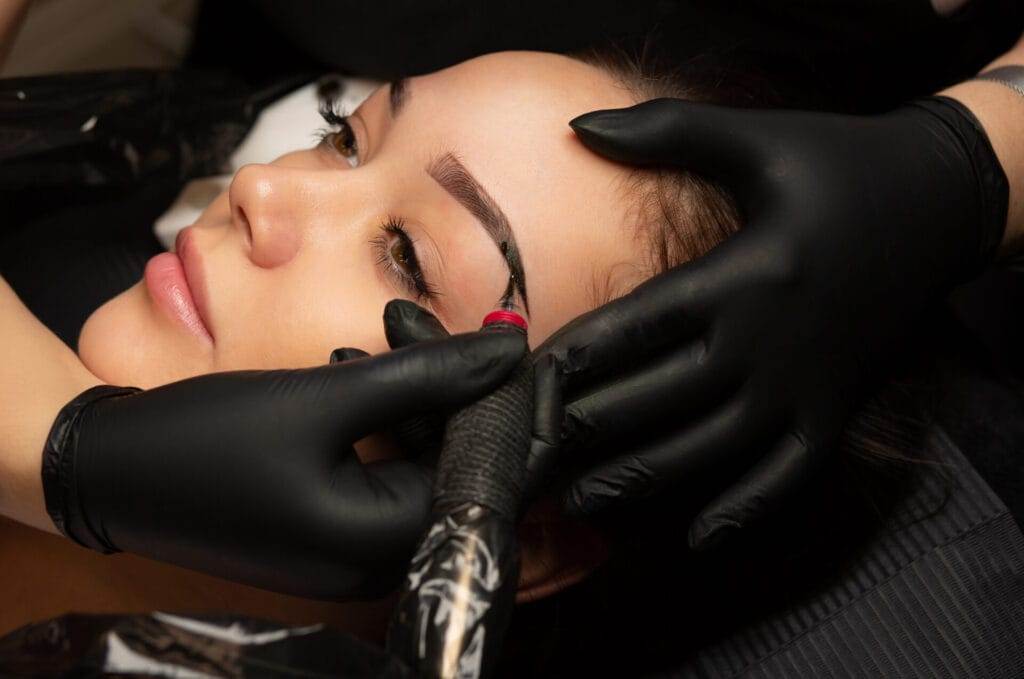
Final Thoughts: Is Cosmetic Tattooing Right for You?
Deciding whether or not cosmetic tattooing is right for you is a personal choice that should be made after careful consideration and consultation with a professional artist. It is important to weigh the pros and cons, consider your lifestyle and preferences, and make an informed decision.
Cosmetic tattooing can be a great option for those who want to save time and effort in their daily makeup routines, boost self-confidence, and enhance their natural features. However, it is important to understand the risks and safety concerns associated with the procedure and choose a reputable and experienced artist.
By doing your research, consulting with professionals, and considering your own needs and preferences, you can make an informed decision about whether or not cosmetic tattooing is right for you. Remember, the ultimate goal of cosmetic tattooing is to enhance your natural beauty and make you feel more confident in your own skin.

